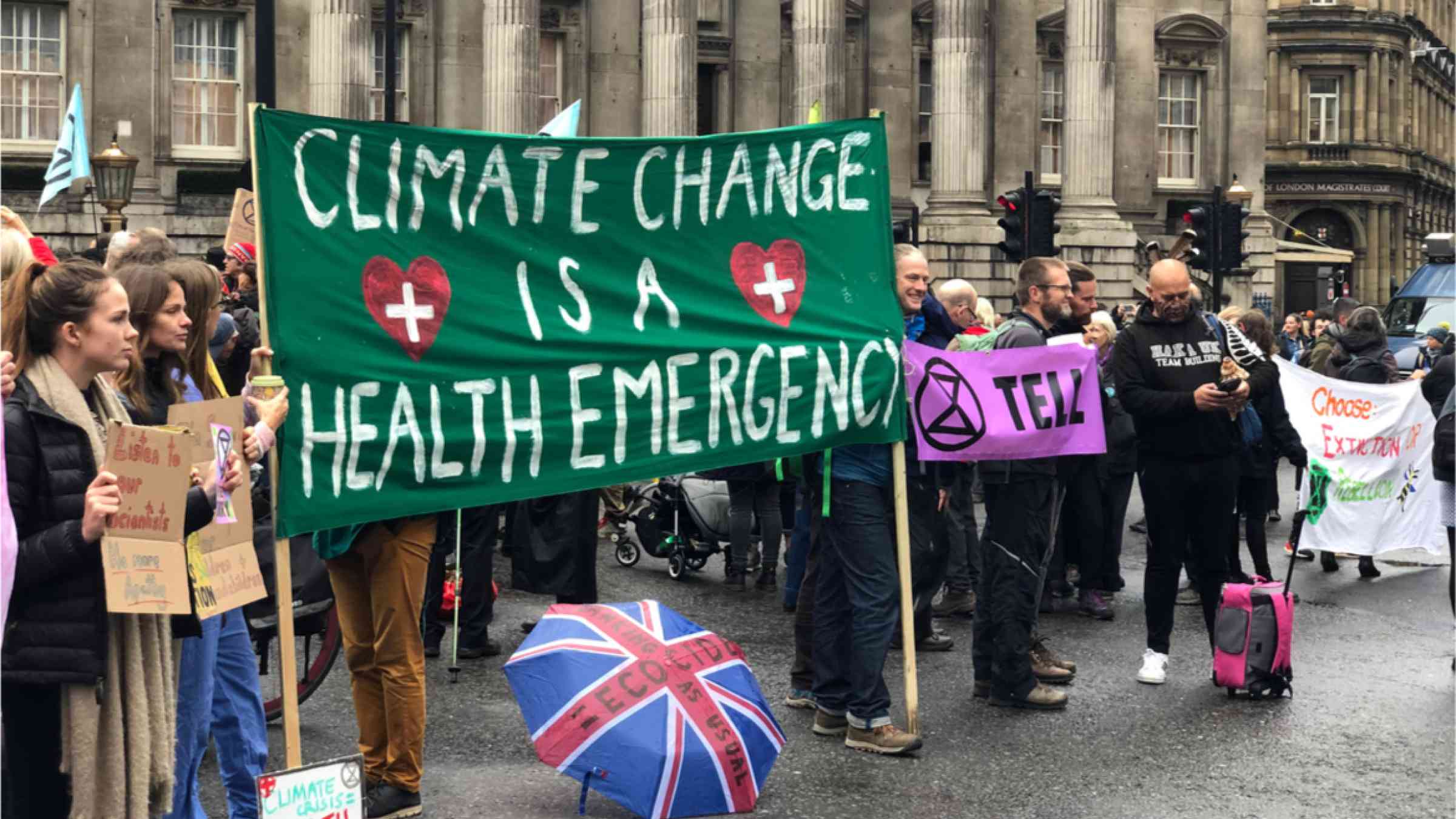Climate action needed to avert ‘health catastrophe’

- Health and equity must be central to climate action, health experts warn
- Impacts of climate change on health ‘already being seen in hospitals worldwide’
- Developing countries most vulnerable to climate change and health toll
To achieve sustained recovery from the COVID-19 pandemic and avoid an “impending health catastrophe”, countries must commit to targeted action on climate change, health experts have urged ahead of the UN climate summit, COP26.
An open letter signed by more than 450 organisations representing 45 million health workers called on national leaders and country delegations at COP26 in Glasgow next month to put “human health and equity” at the centre of climate change mitigation and adaptation actions. The list of signatories represents more than two thirds of the global health workforce, according to the World Health Organization (WHO).
The WHO’s COP26 Special Report on Climate Change and Health, The Health Argument for Climate Action, launched at the same time as the letter, outlined 10 recommendations for governments to “maximise the health benefits of tackling climate change”, and “avoid the worst health impacts of the climate crisis”.
“We are profoundly concerned about the impacts [of climate change] we’re seeing on people’s health now, and that we know are going to get far worse if climate change is not fully addressed.”
- Jeni Miller, chair of the environment section of the American Public Health Association
Jeni Miller, chair of the environment section of the American Public Health Association, a signatory of the letter, told SciDev.Net: “The health community from around the world came together around this letter because we are profoundly concerned about the impacts [of climate change] we’re seeing on people’s health now, and that we know are going to get far worse if climate change is not fully addressed.”
Outlining some of these impacts, the letter states that air pollution, especially from burning fossil fuels, is causing more than seven million premature deaths each year — the equivalent of 13 deaths every minute. It also highlights increases in food-borne, water-borne and vector-borne diseases, as well as the destruction caused by rising sea levels, and increasingly frequent floods, storms and heatwaves.
“Wherever we deliver care, in our hospitals, clinics and communities around the world, we are already responding to the health harms caused by climate change,” the letter says.
According to Miller, no country is immune from climate change, but developing countries are feeling the greater impacts and have the fewest resources to respond.
Ayyoob Sharifi, an associate professor at Japan’s Hiroshima University who specialises in urban climate change adaptation and mitigation, said: “Developing countries are expected to be disproportionately impacted [by climate change] due to their limited adaptive capacity as well as the rapid rates of urbanisation.”
Agnimita Giri Sarkar, a paediatrician at the Institute of Child Health, in Kolkata, India, and a member of the Indian Academy of Pediatrics, another signatory of the letter, told SciDev.Net that, in India and other developing countries, “heatwaves and air pollution coupled with increased urbanisation are directly affecting the health of children and adults”.
“To tackle climate change, a multidisciplinary team approach comprising of environmentologists, scientists, virologists, microbiologists, epidemiologists, and clinicians is necessary,” she added.
As part of the Paris Agreement adopted by governments in 2015 to tackle climate change, governments pledged to take action to limit global rise to 1.5 degree Celsius. However, Miller warned that national governments are not yet taking the level of action that is urgently needed to meet this goal and protect global health.
“We call on the leaders of every country and their representatives at COP26 to avert the impending health catastrophe by limiting global warming to 1.5°C, and to make human health and equity central to all climate change mitigation and adaptation actions,” the letter urged.
Sharifi said the report and letter had come at “a very important time, as the negative impacts of climate change on public health are becoming more and more evident”.
“Given the resource limitations of many cities in developing countries, I recommend prioritising investment in climate policies and measures that can provide co-benefits for health and equity,” he added.